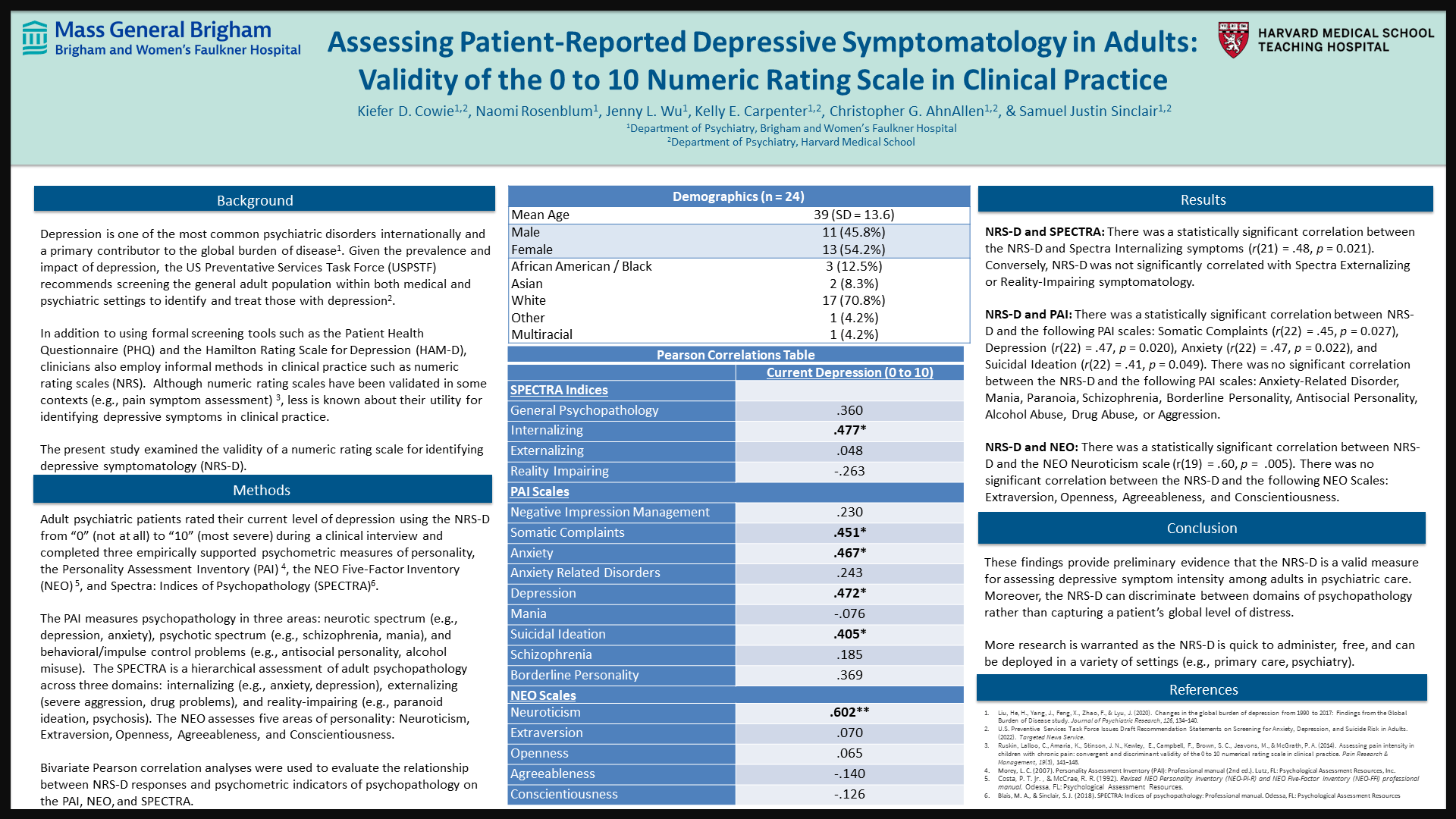Scientific Abstract
Background: Depression is a primary contributor to the global burden of disease. Valid and reliable depression screening methods are vital to reducing this burden. Although numeric rating scales (NRS) have been used in other contexts (e.g., pain), less is known about their utility for identifying psychopathology in clinical practice. The present study examined the validity of a numeric rating scale for identifying depression (NRS-D).
Methods: Adult psychiatric patients rated their current level of depression using the NRS-D from “0” (not at all) to “10” (most severe) during a clinical interview and completed two psychometric measures of psychopathology, the Personality Assessment Inventory (PAI) and Spectra Indices of Psychopathology (Spectra). Bivariate Pearson correlation analyses were used to evaluate the relationship between NRS-D responses and psychometric indicators of psychopathology.
Results: Out of a total number of 24 participants, approximately half identified their biological sex as female (n= 13; 54.2%), most identified as White (n = 17; 70.8%), with a mean age of 39 years (SD = 13.6) and education level of 15.3 years (SD = 2.6). There was a statistically significant correlation between the NRS-D and Spectra Internalizing symptoms (r(21) = .48, p = 0.021). Conversely, NRS-D was not significantly correlated with Spectra Externalizing or Reality-Impairing symptomatology. There was a statistically significant correlation between NRS-D and the following PAI scales: Somatic Complaints (r(22) = .45, p = 0.027), Depression (r(22) = .47, p = 0.020), Anxiety (r(22) = .47, p = 0.022), and Suicidal Ideation (r(22) = .41, p = 0.049). There was no significant correlation between the NRS-D and the following PAI scales: Anxiety-Related Disorder, Mania, Paranoia, Schizophrenia, Borderline Personality, Antisocial Personality, Alcohol Abuse, Drug Abuse, or Aggression.
Conclusions: These findings provide preliminary evidence that the NRS-D is a valid measure for assessing depressive symptom intensity among adults in psychiatric care. The NRS-D is quick to administer, free, and can be deployed in a variety of settings (e.g., primary care, psychiatry).
Search posters

